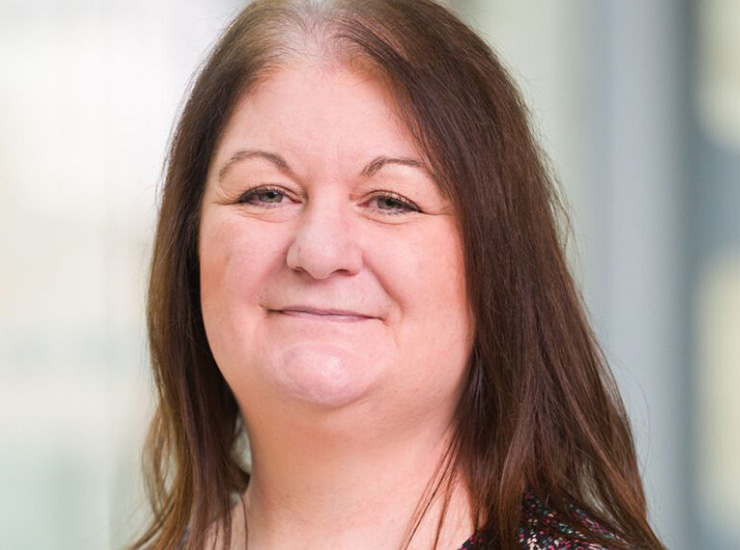By Professor Julie Hulme
Summary of a keynote talk given at the Association for the Teaching of Psychology Annual International Conference, University of Lincoln, July 2024
Within the UK, there has been an increasingly noisy rhetoric about “low quality” university courses, which has focused on the idea that some subjects are so-called “Mickey Mouse” subjects. The term “Mickey Mouse degree” was coined by former Labour Minister for Education Margaret Hodge in 2003, and signified a degree “where the content is not as rigorous as one would expect, and where the degree itself does not have huge relevance in the labour market”. In the past 20 years, graduate earning potential has become the key defining feature. For example, Damian Hinds, Conservative Education Secretary in 2019 suggested that a degree was “economically without value” if a student did not repay their student loan within five years of graduation – and as such, universities should stop teaching them.
So how does this apply to psychology? Within the UK, graduate employment is challenging compared to some other subjects. Around 10-15% of psychology graduates go onto professional psychology careers, with the remainder entering careers in health and social care, education, housing, human resources, the charitable sector, and beyond. New graduates often seek experience to access competitive postgraduate psychology training, and will not necessarily be earning a graduate salary. It takes around 5 years for them to catch up with graduates of other subjects (BPS, 2017). However, students often choose psychology for reasons of “making a difference” in society; their aspirations are not about status or income, but about helping people (Bromnick & Horowitz, 2013). Their aspirations align with Boyer’s (1990) vision: “The aim of education is not only to prepare students for productive careers, but also to enable them to live lives of dignity and purpose; not only to generate new knowledge, but to help shape a citizenry that can promote the public good”. In other words, education derives its value not (only?) from the earning potential of graduates, but from what they can offer to society, and how they can live meaningful lives.
I believe this is where psychology outshines other subjects! I am fascinated by the concept of psychological literacy (Hulme, 2014; Hulme & Cranney, 2022), the “intentional values-driven application of psychology to achieve personal, professional, and community (local to global) goals” (Nolan et al., 2024). In other words, psychology can help students to achieve personal wellbeing and purpose, to contribute in diverse workplaces, and to help to make the world a better place.
Internationally, there is growing interest in where the value of psychology education lies, and in 2022, this led me to join the International Collaboration on Undergraduate Psychology Outcomes (ICUPO) project. Engaging almost 120 people from at least 41 different countries (including global majority nations), and drawing on at least 27 national framework examples, we sought consensus to develop a framework, the International Competences for Undergraduate Psychology (ICUP), that outlines the foundational competences that students worldwide gain from studying undergraduate psychology. The ICUP framework is now approaching completion, and you can read it in almost final draft version as a preprint (Nolan et al., 2024).
Fundamentally, ICUP encompasses two psychology-specific competence sets: Psychological Knowledge; and Psychological Research Methods and Methodologies. Alongside these sit the psychology-relevant competences, which are to an extent generic, in that they are seen in other subjects, but within psychology curricula are informed by psychological research and applied in psychological contexts. These include: Values & Ethics; Critical Thinking & Problem Solving; Cultural Responsiveness & Diversity; Communication & Interpersonal Skills; and Personal & Professional Development.
These competences are exactly what we need in a changing world, where we need to work with sensitivity with people from different cultures, and where knowledge is expanding faster than we can keep up. Not only university, but also entry-level psychology qualifications at school and/or college have huge amounts to offer in terms of preparing students for meaningful and productive personal, professional, and community lives, even if they then leave education or go on to study something different at university. A student learning psychology at school or college is gaining entry-level competences that contribute to their own development and their understanding of the social world in which they live.
While school and college psychology teachers may have less control over what they teach than do university teachers, it is important that we all reflect on how we teach psychology. If we hope that psychology education will help our students to be ethical, respectful of diversity, and critical thinkers, then we need to model those competences ourselves.
Sometimes, the traditional psychology curriculum does not help. For example, most psychology texts show ‘families’ as heteronormative nuclear families. Our students may be living in social care settings, may have non-binary or same sex parents, or may be adopted (Golombok, 2015). When we teach attachment theory, what messages do we send? Do we ‘other’ students, or can they see themselves in the curriculum? We need to reflect the diversity of our students in the ways that we teach psychology.
At my own university, Nottingham Trent University in England, we are ensuring that students develop their psychological literacy, and that they can practice applying psychology in their everyday lives through their curriculum and assessment. Our students initially find this way of thinking challenging, but ultimately, they learn the confidence to go out into the world after graduation with a strong understanding of their skill set, not only a theoretical understanding of their subject.
So – is psychology a Mickey Mouse subject? In answering this question, I did a little research. It’s hard to calculate the value of Mickey Mouse, but since his ‘birth’ in 1928, he has generated at least $52 billion dollars. More than that, he has brought happiness to countless children and adults, including many who were very ill and/or traumatised. He seems to have the kind of value that I aspire to for psychology – who’s with me in helping to make sure that we can say yes?!
With special thanks to all my colleagues at ICUPO for inspiration.
Julie.hulme@ntu.ac.uk
https://www.ntu.ac.uk/staff-profiles/social-sciences/julie-hulme

